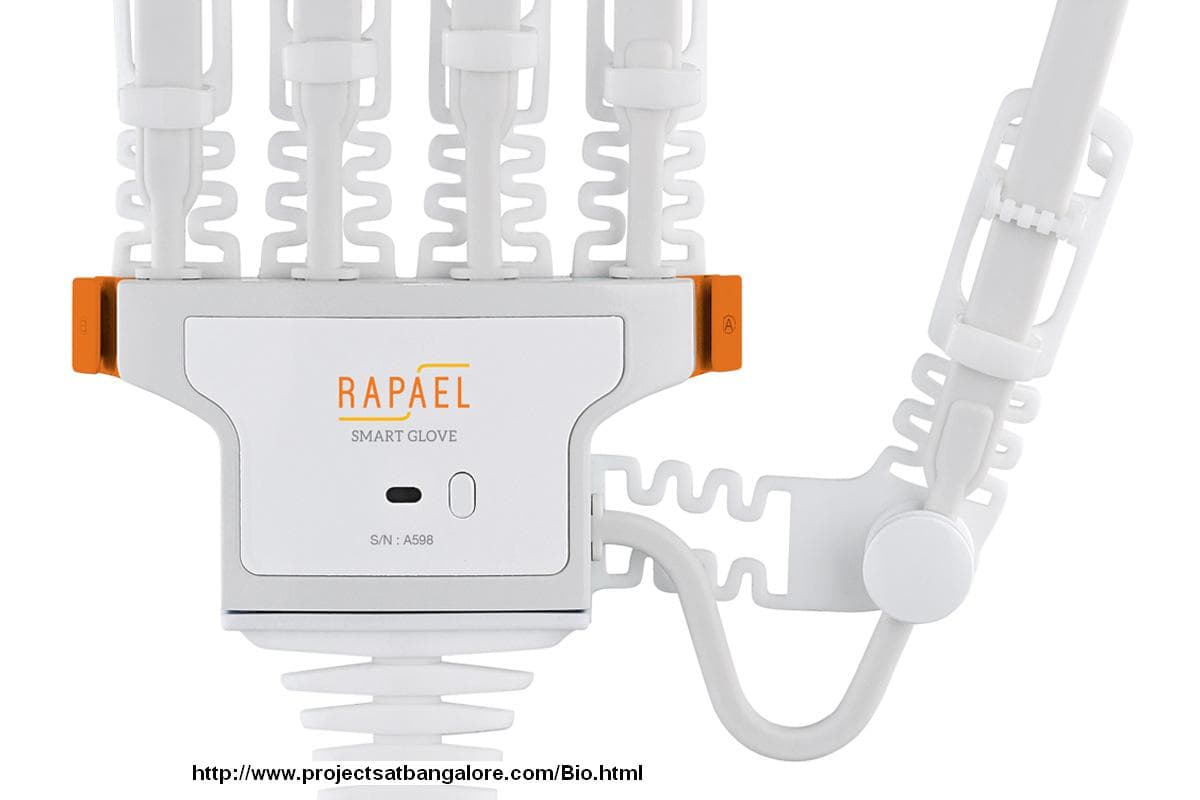Smart Gloves for Physical Therapy and Rehabilitation System Project
Smart Gloves for Physical Therapy and Rehabilitation System Project report

Abstract— Stroke accounts for high rates of mortality and disability. It levies great economic burden on the affected subjects, their family and the society at large. Motor impairments after stroke mainly manifest themselves as hemiplegic or hemi paresis in the upper and lower limbs. Motor recovery is highly variable but can be enhanced through motor rehabilitation with sufficient movement repetition and intensity. Cost effective assistive devices that can augment therapy by increasing movement repetition both at home and in the clinic may facilitate recovery. This thesis aims to develop a Smart Glove that can enhance motor recovery by providing feedback to both the therapist and the patient on the number of hand movements (wrist and finger extensions) performed during therapy. The design implements resistive flex sensors for detecting the extensions and processes the information using the Light blue bean microcontroller mounted on the wrist. Communication between the processing unit and display module.Motor rehabilitation using brain-computer interface (BCI) systems may facilitate functional recovery in individuals after stroke or spinal cord injury. Nevertheless, these systems are typically ill-suited for widespread adoption due to their size, cost, and complexity. In this paper, a small, portable, and extremely cost-efficient (<$200) BCI system has been developed using a custom electroencephalographic (EEG) amplifier array, and a commercial microcontroller and touchscreen. The system’s performance was tested using a movement-related BCI task in 3 able-bodied subjects with minimal previous BCI experience. Specifically, subjects were instructed to alternate between relaxing and dorsiflexing their right foot, while their EEG was acquired and analyzed in real-time by the BCI system to decode their underlying movement state. The EEG signals acquired by the custom amplifier array were similar to those acquired by a commercial amplifier (maximum correlation coefficient =0.85). During real-time BCI operation, the average correlation between instructional cues and decoded BCI states across all subjects (=0.70) was comparable to that of full-size BCI systems. Small, portable, and inexpensive BCI systems such as the one reported here may promote a widespread adoption of BCI-based movement rehabilitation devices in stroke and spinal cord injury populations.Bioelectrical Impedance Analysis (BIA) is widely used tool for Body Composition Analysis in medical electronics and biomedical Engineering. The Body impedance also termed as Bioelectrical Impedance or Bioimpedance. It plays important role in various applications such as nutritional assessment, weight management and clinical research. The system presented in this paper is developed for Bioimpedance analysis from which the physiological body parameters such as Total Body Water (TBW), Fat Mass (FM) and Fat Free Mass (FFM) can be estimated. The proposed system consists of sine wave frequency synthesizer designed using table based method. It is followed by VCCS unit designed using TL071 operational amplifiers. This signal is passed through body with source electrodes and due to impedance of body voltage across the body is taken by sensing electrodes. The phase angle and differential gain is determined by phase gain detector followed by microcontroller based display and monitoring system.